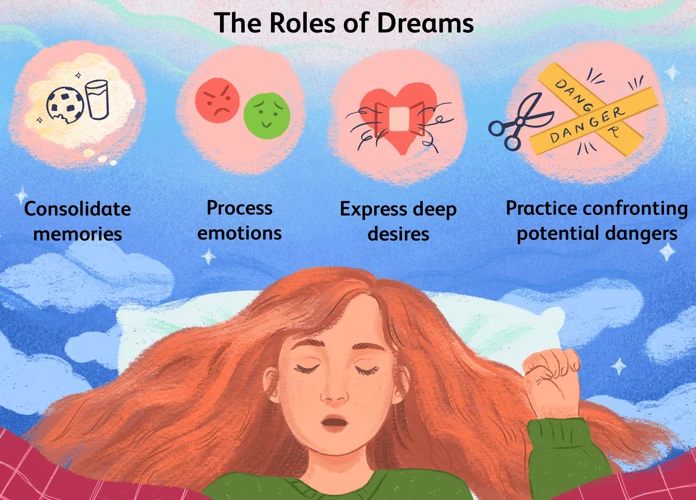Welcome to the Fascinating World of Dreams and Emotions
Have you ever wondered why you wake up feeling joyful, terrified, or even heartbroken after a vivid dream? Dreams have long captured the curiosity of humans, allowing us to experience a range of emotions in a realm where anything seems possible. In this article, we will explore the intricacies of emotions in dreams and delve into the scientific understanding behind them. From the definition and types of dreams to the role emotions play in shaping our dream experiences, as well as the impact dreams have on our waking lives, get ready to embark on a journey that will unravel the mysteries of the emotional landscape of dreams.
The Basics of Dreams
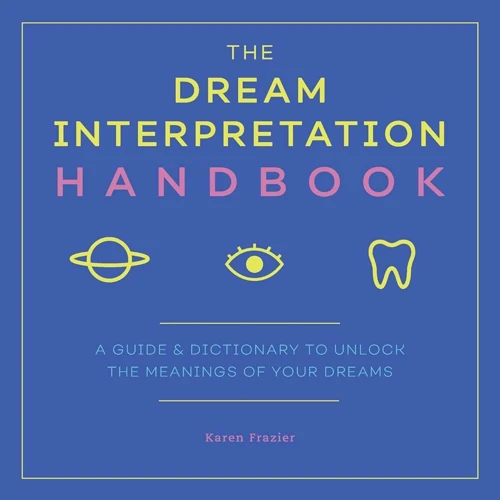
Dreams are enigmatic and elusive experiences that occur during sleep. They can be described as a series of thoughts, images, and sensations that unfold in our minds while we slumber. These extraordinary mental occurrences have fascinated humans for centuries, prompting a multitude of theories and interpretations. Dreams can be vivid and lifelike, or they can be more abstract and fleeting. They often contain elements from our waking lives, intertwined with fantastical scenarios and unfamiliar characters. Understanding the basics of dreams is the first step in unraveling the intriguing connection between dreams and emotions. By exploring the definition of dreams and the various types they can take, we gain valuable insights into the realm that holds the key to our subconscious minds.
Definition of Dreams
The encompasses the unique mental experiences that occur during sleep. Psychologists and researchers have offered various interpretations and perspectives on what dreams truly are. According to renowned psychoanalyst Sigmund Freud, dreams are the “royal road to the unconscious.” Freud believed that dreams are manifestations of repressed desires and unconscious conflicts. On the other hand, for cognitive psychologists, dreams are seen as a product of the brain’s attempt to process and organize information from our daily experiences. They view dreams as a form of mental housekeeping, allowing the brain to consolidate memories and integrate new knowledge. While the exact nature and purpose of dreams continue to be debated, they remain a captivating and mysterious aspect of human existence. Understanding the symbolism of emotions and the intricacies of dreams can provide valuable insights into our subconscious mind and its relationship with our waking reality.
Types of Dreams
- Lucid Dreams: Lucid dreams are a fascinating type of dream where the dreamer becomes aware that they are dreaming. In these dreams, individuals can have a degree of control over their actions and the dream’s narrative. They may consciously make decisions or even alter the dream environment. Lucid dreaming offers a unique opportunity for self-exploration and can be a tool for personal growth and creativity. Exploring dreams and emotions can be particularly intriguing in the context of lucid dreams, as the dreamer becomes an active participant in shaping their emotional experiences within the dream world.
- Nightmares: Nightmares are vivid and distressing dreams that evoke feelings of fear, terror, or anxiety. These dreams can be accompanied by intense emotions and often wake the dreamer in a state of distress. Nightmares can be influenced by real-life stressors, traumatic experiences, or subconscious fears. They may serve as a way for the mind to process and cope with unresolved emotions and anxieties. Understanding the emotions in nightmares is crucial for interpreting and addressing any underlying psychological or emotional issues.
- Recurring Dreams: Recurring dreams are dreams that repeat over time, often with similar themes, settings, or storylines. These dreams can occur sporadically or with regularity, and they may hold significant emotional significance for the dreamer. Recurring dreams can provide insights into unresolved emotions, persistent conflicts, or recurring patterns in the dreamer’s life. Analyzing the emotions behind recurring dreams can lead to a deeper understanding of one’s subconscious thoughts and feelings.
- Prophetic Dreams: Prophetic dreams are dreams in which the dreamer receives information or insights about future events. These dreams can evoke a range of emotions, such as anticipation, excitement, or apprehension. While the scientific consensus on the prophetic nature of dreams is limited, some individuals believe that these dreams offer glimpses into the future. Exploring the emotions in prophetic dreams can be thought-provoking, as they raise questions about the nature of consciousness and the potential for extrasensory perception.
- Surreal Dreams: Surreal dreams are characterized by their bizarre and fantastical elements. In these dreams, the laws of reality may be suspended, and the dreamer may encounter strange creatures, nonsensical situations, or unrealistic scenarios. Surreal dreams often elicit a sense of awe, wonder, or confusion. Exploring the emotions in surreal dreams can provide valuable insights into the dreamer’s imagination, creativity, and subconscious thought processes.
The Role of Emotions in Dreams

Emotions play a pivotal role in the mysterious world of dreams, shaping our dream experiences and leaving a lasting impact on our waking selves. The role of emotions in dreams is vast and profound, representing a complex interplay between our subconscious thoughts, desires, and fears. Dreams often serve as a conduit for our deepest emotions, allowing us to process and explore them in a unique and sometimes surreal way. They can evoke a wide range of feelings, from intense joy and excitement to fear and sadness. Our dream emotions can be a reflection of our daily experiences, unresolved conflicts, or even symbolic representations of our innermost thoughts and feelings. By unraveling the intricate relationship between emotions and dreams, we can gain a deeper understanding of the profound influence they have on our subconscious mind.
Emotional Significance in Dreams
- Reflecting Inner Emotions: Dreams often serve as a reflection of our inner emotional state. They can amplify, intensify, or magnify the emotions we experience in our waking lives. Whether it’s feelings of joy, sadness, fear, or anger, dreams provide a canvas for our emotions to manifest.
- Unconscious Processing: Dreams allow our unconscious mind to process and work through unresolved emotions or conflicts. They can serve as a therapeutic outlet, providing a safe space to explore and express emotions that may be suppressed or hidden in our conscious life.
- Symbolic Representation: Emotions in dreams can also take on symbolic meanings, representing deeper psychological or spiritual aspects of our being. For example, feeling trapped in a dream may symbolize a sense of confinement or limitation in our waking life.
- Insight and Self-Awareness: Emotional experiences in dreams can provide valuable insights into our subconscious desires, fears, and needs. By paying attention to the emotions we feel in our dreams, we can gain a deeper understanding of ourselves and our emotional landscape.
- Empowering Emotional Exploration: Dreams offer a unique opportunity to explore and experience emotions in a controlled environment. They can allow us to confront and process challenging emotions without the real-life consequences, contributing to personal growth and emotional development.
Psychological Theories
Psychological theories offer valuable perspectives and explanations for the role of emotions in dreams. One such theory is the Freudian theory, proposed by Sigmund Freud, which suggests that dreams are a pathway to the unconscious mind and a reflection of repressed desires and conflicts. According to Freud, dreams serve as a way for the mind to fulfill these unconscious wishes in a disguised and symbolic manner. Another prominent theory is the Activation-Synthesis theory proposed by J. Allan Hobson and Robert McCarley. This theory suggests that dreams are a result of random brain activity during REM sleep, which is then interpreted and synthesized by the brain to create a narrative. The Cognitive theory of dreams focuses on the idea that dreams are a product of the brain’s attempt to process and make sense of information gathered during wakefulness. This theory suggests that dreams serve various functions such as problem-solving, emotional regulation, and memory consolidation. By exploring these psychological theories, we gain a deeper understanding of how emotions manifest in dreams and the underlying processes that contribute to our dream experiences.
The Science Behind Dream Emotions
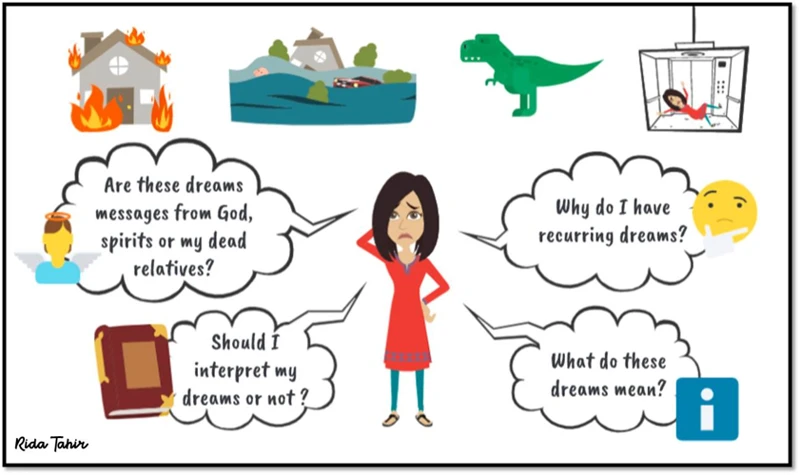
offers a glimpse into the intricate processes that underlie the emotional experiences we encounter in our dreams. Neurological processes play a crucial role in shaping dream emotions. While we sleep, the brain generates electrical signals and activates certain brain regions, such as the amygdala and the limbic system, which are responsible for processing emotions. Hormonal influence is another factor contributing to the emotions we experience in dreams. The release of neurotransmitters and hormones, such as serotonin and dopamine, can intensify or dampen emotional responses. Additionally, dreams aid in memory consolidation, helping to strengthen the emotional connections associated with past experiences. By delving into the science behind dream emotions, we gain a deeper understanding of how our brains create and modulate the emotional landscapes in our dreams.
Neurological Processes
The science behind the emotional experiences we have in dreams lies in the intricate web of neurological processes that occur within our brains during sleep. When we dream, different areas of the brain become activated, including the amygdala, which is responsible for processing emotions. The amygdala plays a crucial role in shaping the emotional content of our dreams, triggering feelings of fear, joy, sadness, and more. Additionally, the prefrontal cortex, involved in decision-making and emotional regulation, is less active during REM sleep, the stage in which most vivid dreaming occurs. This reduced prefrontal activity can lead to a lack of logical reasoning and emotional regulation in dreams, allowing emotions to run wild and intensifying their impact. Studies suggest that dreaming is associated with the release of certain neurotransmitters, such as serotonin and norepinephrine, which are involved in mood regulation. These neurotransmitters, along with the activation of various brain regions, contribute to the complex interplay of emotions in dreams.
Hormonal Influence
Hormonal influence plays a significant role in shaping the emotional landscape of our dreams. Hormones, chemical messengers in our body, have the power to impact our mood, emotions, and even our dream experiences. During sleep, our hormone levels fluctuate, which can influence the intensity and types of emotions we experience in our dreams. For example, increased levels of stress hormones like cortisol can lead to more anxiety or fear-based dreams, while hormonal imbalances can contribute to feelings of sadness or melancholy in our dream states. On the other hand, elevated levels of dopamine, often associated with feelings of pleasure and reward, can lead to dreams of excitement and joy. These hormonal fluctuations create a dynamic interplay between our physiological state and our dream emotions, highlighting the intricate relationship between our body and mind as we venture into the world of dreams.
Memory Consolidation
Memory consolidation is one of the fascinating aspects of the science behind dream emotions. During sleep, our brain processes and organizes new information and experiences from the day. This process, known as memory consolidation, is crucial for storing information in long-term memory. Dreams play a vital role in this process by solidifying our memories and strengthening neural connections. While we dream, our brain replays and retraces the neural pathways associated with the events of the day. This repetition and rehearsal of experiences contribute to memory retention and encoding. As a result, emotions experienced during the waking hours can manifest and intensify in dreams, further cementing their importance in our memory consolidation process. This phenomenon explains why intense emotional experiences, both positive and negative, can often be vividly recalled upon awakening, as our dreams have aided in solidifying these memories.
Common Emotions Experienced in Dreams
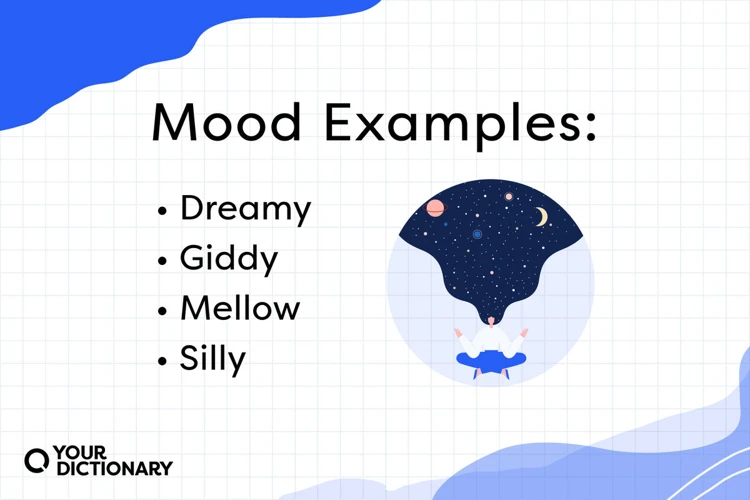
Emotions in dreams can range from intense fear and anxiety to overwhelming joy and excitement. They can mirror our real-life experiences, but they can also manifest in unexpected and abstract ways. Common emotions experienced in dreams include:
- Fear and Anxiety: Dreams often tap into our deepest fears and anxieties, creating scenarios that evoke intense emotions of terror and unease. These dreams may reflect unresolved worries or subconscious fears.
- Excitement and Joy: Dreams can also bring about feelings of excitement and pure joy. They may involve thrilling adventures, successful accomplishments, or reconnection with loved ones, leaving us with a sense of happiness and elation upon waking.
- Sadness and Grief: Dreams sometimes delve into emotions of sadness and grief, allowing us to process and explore our feelings of loss. These dreams can create a space for healing and acceptance.
These emotions experienced in dreams are often heightened and can leave a lasting impact on our waking lives as we try to decipher their meaning and significance.
Fear and Anxiety
Fear and anxiety are common emotions experienced in dreams. When we encounter threatening or dangerous situations in our dreams, our brain activates the fear response, triggering a cascade of physiological changes. These changes can include an increased heart rate, rapid breathing, and heightened alertness. It is important to note that experiencing fear and anxiety in dreams does not necessarily indicate the presence of a real-life threat, as dreams often incorporate symbolic representations. Fear and anxiety in dreams may reflect unresolved fears or anxieties from our waking lives, providing an outlet for processing and confronting these emotions in a safe environment. Additionally, dreams can also be influenced by external factors such as stress, trauma, or even certain medications. Understanding the underlying emotions behind fear and anxiety in dreams can provide valuable insights into our subconscious fears and help us address them in our waking lives.
Excitement and Joy
Excitement and joy are powerful emotions that can manifest themselves in dreams, creating uplifting and exhilarating experiences. When we feel excitement and joy in our dreams, it often mirrors the same emotions we experience in our waking lives, but in a heightened and sometimes surreal manner. These emotions can stem from a variety of sources, such as anticipation of an upcoming event, a sense of accomplishment, or simply experiencing pure bliss. In dreams, excitement and joy can be expressed through exhilarating activities like flying, dancing, or exploring beautiful landscapes. The sensations of freedom, euphoria, and infectious happiness can fill the dream space, providing a delightful escape from the constraints of reality. The brain releases neurotransmitters like dopamine and endorphins during these joyous dream experiences, further enhancing the feelings of elation and pleasure.
Sadness and Grief
Sadness and grief are common emotions experienced in dreams and can have a profound effect on our overall dream experience. Dreams have the ability to tap into our deepest emotions, and sadness and grief are no exception. In dreams, these emotions can manifest in various ways, such as feeling a deep sense of loss, experiencing the pain of separation from a loved one, or reliving past traumatic events. Sadness in dreams can be triggered by a range of factors, including unresolved emotional issues, recent or past loss, or even symbolic representations of sadness in response to certain life situations. It is important to note that the experience of sadness in dreams does not necessarily indicate a negative emotional state in waking life but may instead serve as a healing process or an opportunity for emotional release.
Grief, on the other hand, often arises from the loss of a loved one or coping with significant life changes. In dreams, grief can be represented through vivid memories, interactions with deceased individuals, or symbolic representations of loss. Dreams involving grief can provide a unique opportunity to process and work through our emotions, aiding in the healing and acceptance of the loss experienced. They may also offer a chance to reconnect with the departed or find closure in unresolved aspects of the relationship.
It is important to pay attention to the emotional nuances and symbolism present in dreams of sadness and grief. Reflecting on these dreams can provide valuable insights into our emotional well-being, helping us navigate through the healing process and find solace in the midst of sorrow.
Interpreting Emotions in Dreams

Interpreting emotions in dreams is a complex and subjective task that can provide valuable insights into our subconscious minds. Dreams have the power to evoke a wide range of emotions, from fear and excitement to sadness and joy. One way to interpret emotions in dreams is through a symbolic interpretation approach. In this method, specific emotions and dream elements are seen as symbols representing deeper meanings and messages. For example, experiencing fear in a dream may symbolize underlying anxieties or unresolved fears in waking life. Another approach to interpreting emotions in dreams is through a personal significance lens. This involves considering the unique context, experiences, and emotions of the dreamer to decipher the emotional significance of specific dream elements. By exploring these different methods, we can gain a deeper understanding of the emotional landscape of dreams and uncover hidden meanings that may be influencing our waking lives.
Symbolic Interpretation
Symbolic interpretation of emotions in dreams is a fascinating aspect of dream analysis. Dreams often speak to us in a symbolic language, using metaphors and images that represent our subconscious thoughts and desires. In the realm of emotions, this symbolic language allows our unconscious mind to communicate complex feelings and experiences in a way that may be difficult to express consciously. For example, a dream about being chased by a ferocious animal may symbolize feelings of fear and vulnerability in our waking lives. Similarly, dreaming about flying can symbolize a sense of freedom and liberation. Interpreting the symbolism of emotions in dreams requires careful consideration of the context and personal associations attached to specific symbols. This approach allows us to unlock deeper meanings and gain insights into our innermost thoughts and emotions. Understanding the symbolic language of dreams can offer a valuable tool for self-reflection and personal growth.
Personal Significance
When it comes to interpreting the emotions experienced in dreams, personal significance plays a crucial role. Each individual brings their unique life experiences, memories, and emotions to the dream world, which shapes the meaning and significance of the emotions felt during dreams. For instance, a dream about falling can evoke fear and panic in one person due to a past traumatic experience, while it may represent a sense of liberation and adventure for another who enjoys thrill-seeking activities. Similarly, sadness in a dream can indicate grief and loss for someone mourning a loved one, but it can also symbolize introspection and reflection for someone going through a period of self-discovery. Exploring the personal context and associations attached to specific emotions in dreams is vital for a comprehensive understanding of their significance.
Controlling Dream Emotions

Controlling emotions in dreams is a skill that many people strive to attain, as it allows for a more fulfilling and empowering dream experience. While dreams are often described as uncontrollable and unpredictable, there are techniques that can be employed to harness and regulate the emotions we experience while dreaming. Lucid dreaming techniques serve as a powerful tool in achieving this level of control. Lucid dreaming is the practice of becoming aware that you are dreaming while still in the dream state, giving you the ability to actively participate and shape the dream. By developing lucid dreaming skills, individuals can consciously alter the emotional tone of their dreams, transforming fear into courage, sadness into joy, and anxiety into calmness. Additionally, emotional regulation methods, such as meditation and visualization exercises, can be utilized to bring about a sense of emotional stability and balance within dream scenarios. With these techniques, dreamers can steer their emotions and create dream experiences that are both enjoyable and enriching.
Lucid Dreaming Techniques
Lucid dreaming refers to the state of being aware that you are dreaming while you are in the dream itself. This remarkable phenomenon allows you to have control and agency within the dream world. Various techniques can be employed to increase the likelihood of lucid dreaming. One popular method is reality testing, which involves regularly checking for unusual or inconsistent details throughout the day. By making a habit of questioning whether you are dreaming or not, this practice can carry over into your dreams, triggering the realization that you are, in fact, dreaming. Another technique is keeping a dream journal, where you record your dreams upon waking. This helps in enhancing dream recall and can assist in recognizing recurring dream symbols or patterns, thus increasing your chances of becoming lucid. Mild (Mnemonic Induction of Lucid Dreams) is another technique that involves setting an alarm to wake you up during a period of REM sleep, when dreams are most likely to occur. During this awakening, you engage in mental exercises focused on the desired outcome of having a lucid dream, such as repeating affirmations or visualizing yourself becoming aware in a dream. These techniques, among many others, serve as powerful tools to unlock the potential to control your emotions and experiences within the dynamic world of lucid dreams.
Emotional Regulation Methods
refer to various techniques that individuals can employ to manage and regulate their emotions within dreams. These methods are aimed at promoting a sense of control and stability over the emotional landscape of dreams. One commonly used technique is relaxation exercises, such as deep breathing or progressive muscle relaxation, which can help calm intense emotions like fear or anxiety. Another approach is visual imagery, where individuals intentionally imagine positive or pleasant scenarios to elicit emotions of joy or happiness. Additionally, some people utilize cognitive techniques, such as reframing negative situations or thoughts into more positive ones, to shape the emotional tone of their dreams. Another effective method is setting intentions before sleep, where individuals consciously choose the emotional state they wish to experience in their dreams, such as confidence or peace. Mindfulness practices, such as meditation or staying present in the dream, can also aid in emotional regulation by allowing individuals to observe and accept their emotions without judgment. These techniques can empower individuals to influence the emotions they experience within their dreams, ultimately enhancing their dream experiences and overall well-being.
The Impact of Real-Life Emotions on Dreams

Our waking life experiences and the emotions we feel throughout the day have a profound impact on the content and tone of our dreams. Real-life emotions can seep into our dream world, influencing the scenarios, interactions, and overall atmosphere of our dreams. When we experience intense emotions during the day, such as stress, happiness, or sadness, they can manifest in our dreams as well.
Emotional Residue: The emotional residue from our daily experiences can carry over into our dreams. For example, if we have a particularly stressful day at work, we may find ourselves having dreams filled with tension, conflict, or the feeling of being overwhelmed. Similarly, if we experience moments of joy and excitement, our dreams might reflect those positive emotions with vibrant and uplifting scenarios.
Influencing Daily Emotions: Interestingly, the impact of real-life emotions on dreams doesn’t end when we wake up. The emotions we experience in our dreams can linger and affect our mood and emotions throughout the day. A particularly vivid dream filled with fear or sadness may leave us feeling unsettled or melancholic upon awakening. On the other hand, a dream filled with joy and happiness can bring about a sense of positivity and optimism that carries over into our waking life.
Understanding the link between real-life emotions and dreams allows us to recognize the power that our emotions hold over our dream experiences and subsequent waking life. By paying attention to our emotions and how they influence our dreams, we can gain valuable insights into our subconscious thoughts and desires.
Emotions in Lucid Dreams

Emotions in lucid dreams take on a whole new level of intensity and depth. Lucid dreams are dreams in which the dreamer becomes aware that they are dreaming and can exert some level of control over the dream content. In these extraordinary dream states, emotions can be heightened, amplified, and incredibly immersive. Lucid dreamers often report experiencing a heightened sense of joy, excitement, and exhilaration in their dreams, as they have the freedom to explore and shape their dreamscapes. Conversely, lucid dreams can also bring forward intense emotions such as fear or sadness, as the dreamer grapples with the powerful imagery and experiences they encounter. The emotional landscape of lucid dreams offers a unique opportunity for self-exploration and emotional healing, making these dreams a captivating subject of study for psychologists and dream enthusiasts alike.
Enhanced Emotional Awareness
One remarkable aspect of experiencing emotions in lucid dreams is the phenomenon of enhanced emotional awareness. In a lucid dream, the dreamer becomes aware that they are dreaming and gains a level of consciousness within the dream state. This heightened state of awareness can lead to a deeper connection and understanding of emotions. In a lucid dream, individuals may have the ability to experience emotions more intensely and consciously.
When lucid dreaming, individuals can explore and interact with their emotions in a controlled environment. They have the opportunity to observe and analyze their emotional responses in real-time without the constraints of waking life. This heightened emotional awareness within lucid dreams can be a powerful tool for personal growth and self-exploration. It allows individuals to examine their emotional patterns, triggers, and reactions in a safe and introspective space.
The experience of enhanced emotional awareness in lucid dreams can have a positive impact on waking life. By gaining a deeper understanding of their emotions and how they manifest within dreams, individuals may develop greater emotional intelligence and resilience. They can learn how to regulate and navigate their emotions more effectively, leading to improved relationships, decision-making, and overall well-being in their day-to-day lives.
Emotional Exploration and Healing
- Enhanced Emotional Awareness: One fascinating aspect of lucid dreaming is the heightened emotional awareness that comes with it. When individuals are aware that they are dreaming, they can consciously explore and experience a wide range of emotions within the dream state. This heightened emotional intensity can provide a unique opportunity for emotional exploration and self-discovery.
- Emotional Exploration and Healing: Lucid dreaming can also be a powerful tool for emotional healing and growth. Since dreams often reflect and process our waking life experiences and emotions, consciously engaging with our emotions in the lucid dream state allows us to confront and work through unresolved emotions, traumas, and conflicts. This process can lead to a deeper understanding of ourselves and promote emotional healing and resilience.
- Overcoming Fears and Phobias: Lucid dreaming provides a safe environment for individuals to confront and overcome their fears and phobias. By becoming lucid in a dream where a specific fear or phobia is present, individuals can consciously choose to confront and desensitize themselves to that fear. Through repeated exposure and the ability to control the dream narrative, individuals can gradually reduce the emotional intensity associated with their fears, ultimately leading to their resolution.
- Emotional Creativity and Expression: Lucid dreaming offers a unique opportunity for emotional creativity and expression. In this altered state of consciousness, dreamers can choose to explore emotions in a vivid and immersive way, allowing them to tap into their creative potential and experience emotions in a profound and transformative manner. This emotional exploration can foster personal growth, inspire artistic endeavors, and deepen our understanding of the human emotional experience.
Emotions and Nightmares
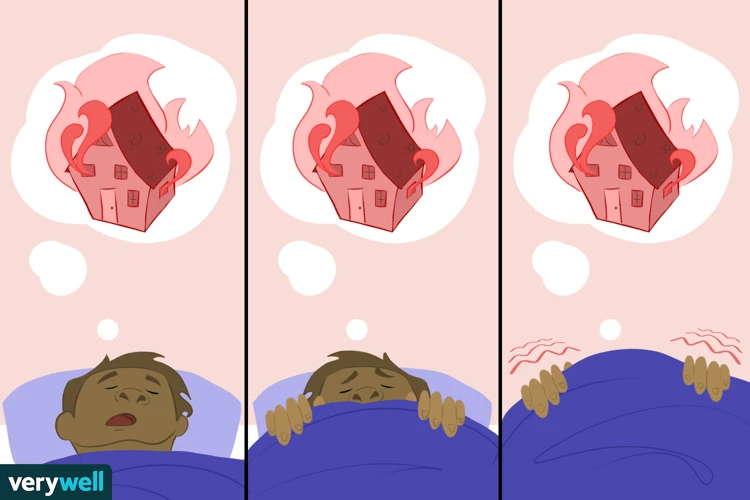
Emotions and nightmares go hand in hand, often creating intense and distressing experiences during sleep. Nightmares are vivid and alarming dreams that can evoke powerful emotions such as fear, terror, and anxiety. These intense emotions can feel incredibly real, leaving us startled and unsettled upon waking. Nightmares can be triggered by a variety of factors, including stress, trauma, and subconscious fears. They can occur during any stage of sleep, but are most commonly experienced during rapid eye movement (REM) sleep. During these unsettling dreams, the emotions that arise can feel overwhelming and may even linger upon waking, leaving an emotional residue that can affect our mood and well-being throughout the day. Coping with nightmare emotions can be challenging, but understanding their origins and implementing strategies for managing them can help restore a sense of peace and tranquility to our dream-filled nights.
Understanding Nightmare Emotions
Nightmares can evoke intense and disturbing emotions that linger long after waking up. These vivid and often unsettling dreams can be marked by feelings of fear, anxiety, terror, or even helplessness. Understanding the emotions experienced during nightmares is crucial in deciphering their underlying causes and potential impact on our well-being. Some common emotions associated with nightmares include:
- Fear: Nightmares often provoke a deep sense of fear, creating a state of heightened panic and terror. The fear experienced in nightmares can be so intense that it can jolt us awake, leaving us feeling disoriented and unsettled.
- Anxiety: Nightmares can be accompanied by overwhelming feelings of anxiety, making us feel helpless or trapped in a distressing situation. These anxiety-inducing dreams may manifest as recurring themes or scenarios that reflect our deepest fears and insecurities.
- Terror: Some nightmares can induce a sense of sheer terror, causing us to wake up with a racing heart, rapid breathing, and a lingering sense of dread. These intense emotions can be so vivid that they can affect our overall well-being and disrupt our sleep patterns.
It is important to recognize that nightmares are a natural part of the dreaming process and can serve as a means of processing our fears, anxieties, and unresolved emotions. By understanding the range of emotions that can be experienced during nightmares, we can begin to explore their underlying causes and work towards finding ways to cope with and overcome them.
Coping with Nightmares
Nightmares can be distressing and have a lasting impact on our emotional well-being. Fortunately, there are strategies that can help us cope with these unsettling dreams and reduce their negative effects. One effective approach is to practice relaxation techniques before bedtime, such as deep breathing exercises or progressive muscle relaxation, to promote a calm and peaceful state of mind. Engaging in regular exercise during the day can also contribute to better sleep quality and a decreased likelihood of experiencing nightmares. It’s important to establish a comforting sleep environment, ensuring the bedroom is quiet, dark, and free from distractions. If a nightmare does occur, it can be helpful to discuss and process the content of the dream with a trusted friend or therapist. This can provide a sense of validation and support, as well as offer an opportunity to gain insight into any underlying fears or anxieties. Some individuals find solace in creative outlets, such as writing or drawing, to express and release the emotions associated with their nightmares. Additionally, practicing relaxation and mindfulness exercises during waking hours can help regulate anxiety and reduce the likelihood of distressing dreams. Remember, coping with nightmares is a multifaceted process, and finding the strategies that work best for you may involve a combination of these approaches.
Affect on Waking Life
As we navigate the complexities of our dream world, it is essential to recognize the profound impact dreams can have on our waking life. Dreams are not confined to the realm of slumber; they can shape our thoughts, feelings, and behaviors during our conscious hours. The emotions we experience in dreams can linger, leaving behind an emotional residue that affects our moods and perceptions even after we wake up. This phenomenon, known as emotional residue, can manifest as a lingering sense of joy, fear, or sadness from a particularly intense dream. The emotions we experience in dreams can influence our daily emotions and reactions, contributing to our overall well-being and mindset. The intricate relationship between dreams and waking life emotions highlights the profound interconnectedness of our subconscious and conscious selves, reminding us of the power that dreams hold in shaping our lived experiences.
Emotional Residue
When we wake up from a particularly emotional dream, we may continue to feel the lingering effects of those emotions throughout the day. This phenomenon is known as “emotional residue.” Our dreams can leave an imprint on our waking consciousness, influencing our mood, thoughts, and overall emotional state. For example, if we experienced a dream filled with fear or sadness, we may carry those emotions with us even after we wake up. This emotional residue can color our interactions with others, our decision-making processes, and our overall well-being. It’s important to recognize that these emotions may not have a direct correlation to our current circumstances or reality; they stem from the dream experience itself. By acknowledging and understanding the presence of emotional residue, we can approach our day with greater awareness and consciously work towards regulating our emotions.
Influencing Daily Emotions
Our emotions in dreams are not confined solely to the realm of slumber. They have the power to spill over into our waking lives, influencing our daily emotions and well-being. The intense feelings we experience during dreams can linger long after we wake up, impacting our mood, behavior, and interactions with others. Positive emotions, such as joy and excitement, can lead to increased motivation and a sense of fulfillment throughout the day. Conversely, negative emotions, such as fear or sadness, can cast a shadow over our mood and make it challenging to engage in activities effectively.
Dreams can act as a window into our subconscious mind, bringing to the surface unresolved emotions or underlying issues that we may not even be consciously aware of. For example, a dream filled with anger or frustration may indicate repressed emotions that need to be addressed in our waking lives. By recognizing and reflecting upon these emotional residues from our dreams, we can gain valuable insights into our emotional well-being and take steps to address any unresolved issues.
It is important to note that while dreams can have a significant impact on our daily emotions, they are not the sole determinant of how we feel and behave. Our emotions in waking life are influenced by a wide range of factors, including our personal experiences, relationships, and external circumstances. Nonetheless, dreams provide a unique opportunity for self-reflection and emotional exploration, allowing us to gain a deeper understanding of ourselves and the emotional patterns that shape our lives.
Conclusion
Understanding the science behind emotions in dreams provides us with valuable insights into the intricate workings of the human mind while we sleep. Dreams offer a unique platform for us to experience a wide range of emotions, from fear and anxiety to excitement and joy, and even sadness and grief. Through neurological processes, hormonal influence, and memory consolidation, our emotions in dreams are shaped and influenced. Interpreting these emotions in dreams can be a tool for self-reflection and understanding, whether through symbolic interpretation or personal significance. Controlling dream emotions is possible through lucid dreaming techniques and emotional regulation methods, allowing us to navigate and harness the power of our dream experiences. Moreover, emotions in dreams are not confined solely to the dream realm; they can also have an impact on our waking lives, influencing our daily emotions and leaving emotional residue. Exploring the connection between emotions and dreams, including lucid dreams and nightmares, brings about enhanced emotional awareness and the potential for emotional exploration and healing. Ultimately, understanding the science and significance of emotions in dreams is a captivating journey that sheds light on the complex nature of human consciousness during sleep.
Frequently Asked Questions
What happens in our brain when we dream?
During dreams, the brain engages in a complex dance of neural activity. The parts of the brain responsible for rational thinking, like the prefrontal cortex, are less active, while regions associated with emotions and memory, such as the amygdala and hippocampus, become more active. This explains why dreams often feel surreal and emotionally charged.
Why do we dream?
The exact purpose of dreams remains a subject of debate among scientists. Some theories suggest that dreams serve as a way for the brain to process emotions, consolidate memories, and simulate real-life scenarios. Others propose that dreams have evolutionary significance, helping us prepare for potential threats or solve complex problems.
Why do dreams sometimes feel so real?
Dreams can feel incredibly real due to the brain’s activation of sensory areas during sleep. Visual, auditory, and even tactile sensations can be vividly experienced in dreams. Additionally, the absence of critical thinking in dreams can contribute to their perceived realism.
Can we control our dreams?
Yes, it is possible to gain some level of control over our dreams through a practice called lucid dreaming. Lucid dreamers are aware that they are dreaming and can actively participate in and manipulate the dream environment. Various techniques, such as reality checks and dream journaling, can help induce lucid dreaming.
Do dreams have symbolic meanings?
Many people believe that dreams contain symbolic meanings that can be interpreted. Certain objects, situations, or emotions experienced in dreams can represent deeper subconscious thoughts or desires. However, dream symbolism is highly subjective, and its interpretation can vary from person to person.
Why do we often forget our dreams?
Forgetting dreams is a common occurrence. It is believed that the transition from the dream state to wakefulness can disrupt the memory consolidation process, resulting in the loss of dream memories. Additionally, dreams that are not personally significant or emotionally arousing are more likely to be forgotten.
Can dreams predict the future?
While some individuals claim to have experienced prophetic dreams, scientifically, there is no concrete evidence that dreams can predict the future. Dreams can sometimes tap into our subconscious knowledge and intuition, but their content is primarily influenced by past experiences, emotions, and thoughts.
Why do we sometimes have recurring dreams?
Recurring dreams often reflect unresolved emotions, conflicts, or unresolved issues in our lives. They may arise as a result of unresolved trauma, anxiety, or repetitive patterns of thinking. Recurring dreams provide an opportunity for introspection and understanding to address these underlying concerns.
Why do nightmares occur?
Nightmares can be triggered by various factors, including stress, trauma, anxiety, or even certain medications. They often involve intense negative emotions, fear, or distressing themes. Nightmares can be the brain’s way of processing and coping with emotional challenges or traumatic experiences.
Can dreams have a lasting impact on our waking lives?
Dreams can have a significant impact on our waking lives. They can influence our mood, emotions, and even our decision-making. Dreams may also provide insights into our subconscious thoughts and desires, aiding personal growth and self-reflection.

